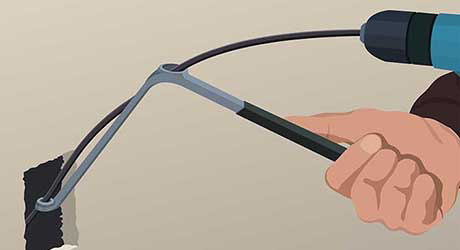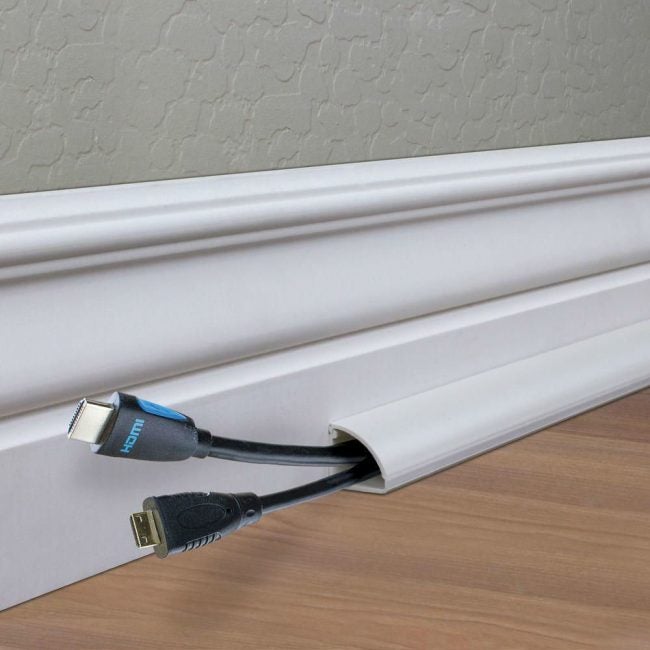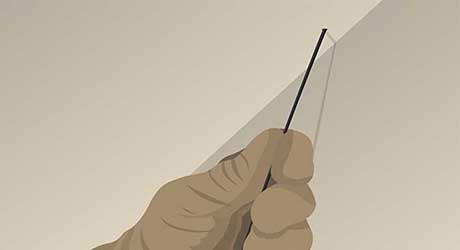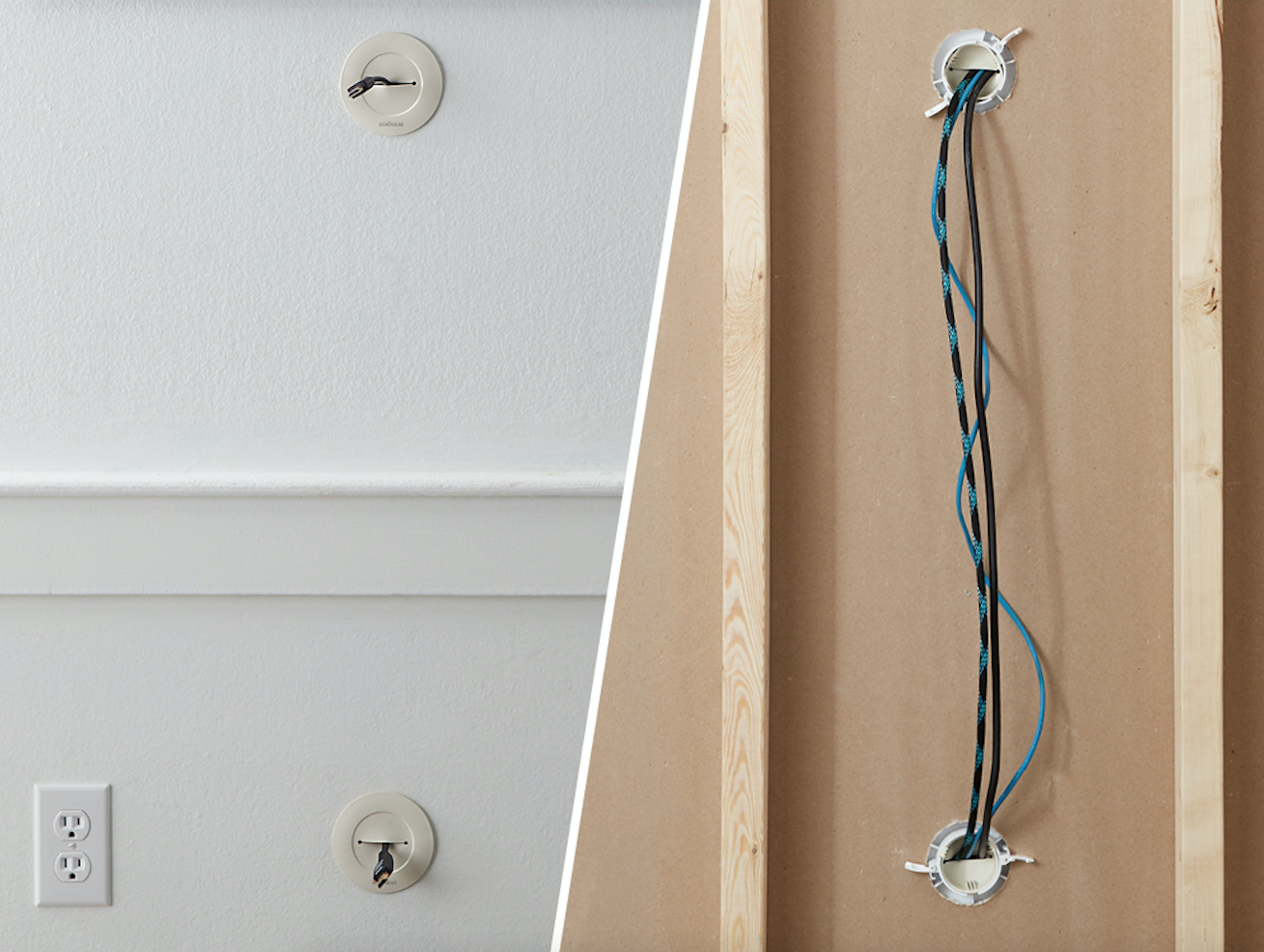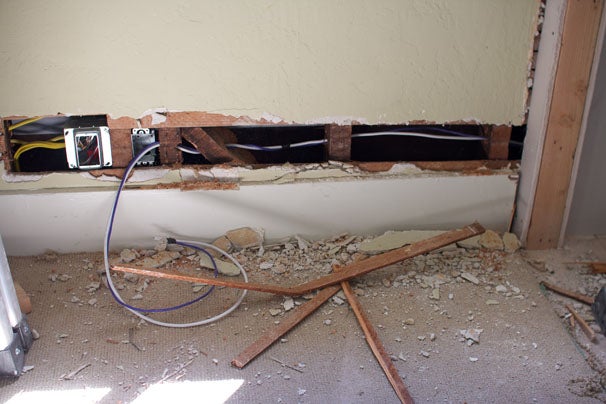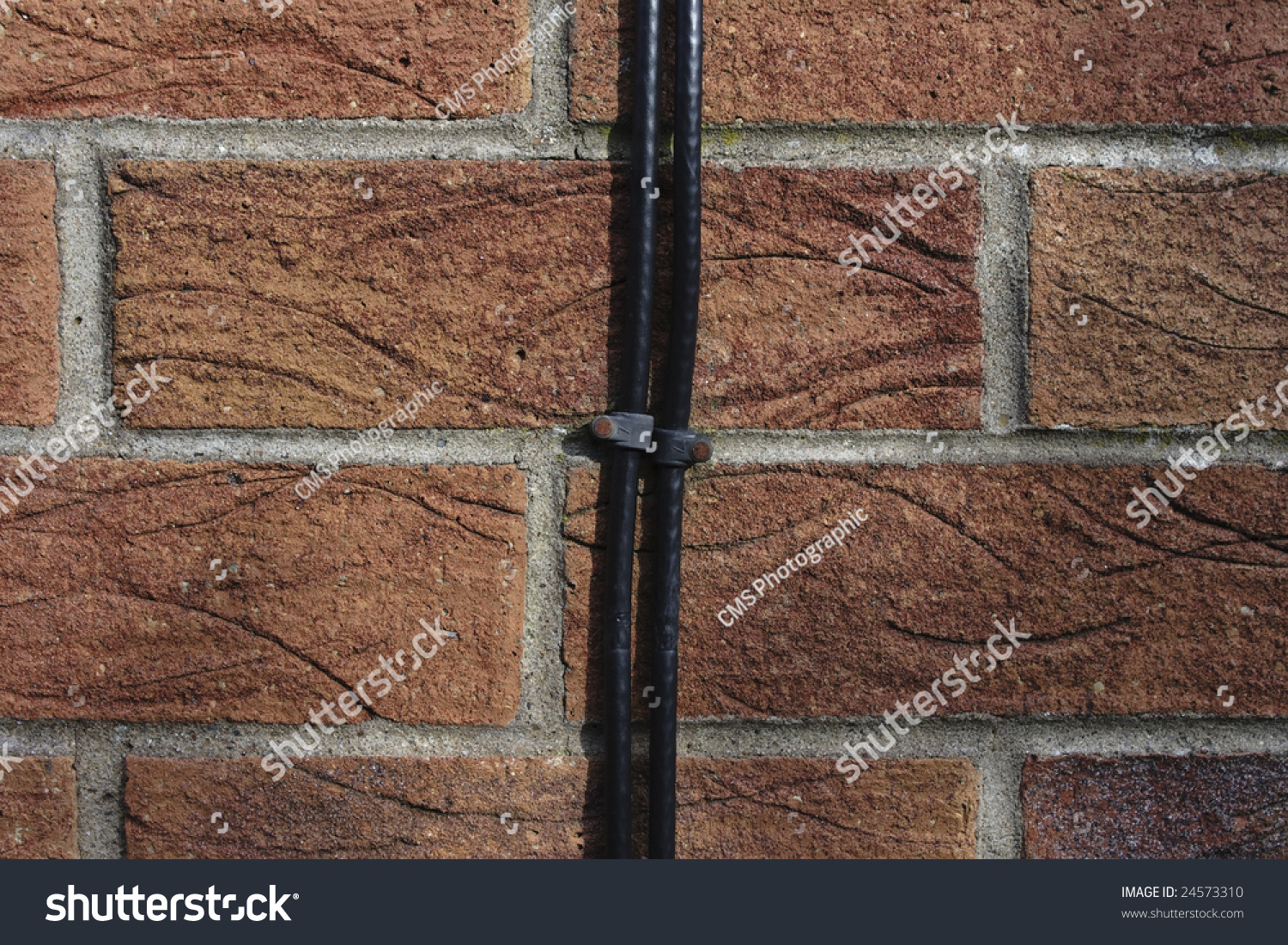You can run electrical wire outside to nearly any location. Eyeball existing electrical.
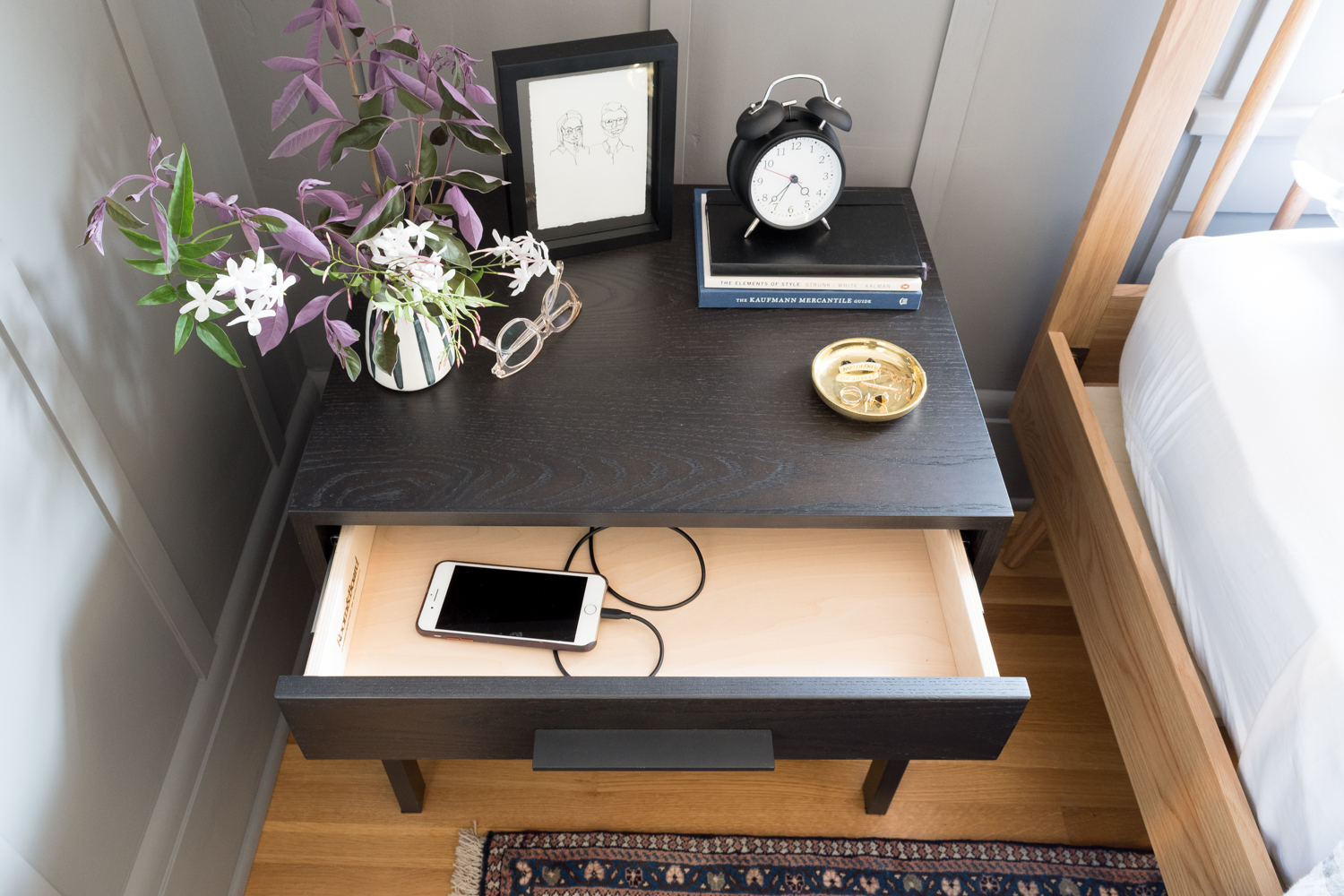
How To Hide Cords Plus All My Tricks For Cable Management
Run wire along wall. That way if you finish your basement later these wires wont interfere with a drywall ceiling. Although some types of electrical cable do not have to be enclosed in conduit for outside installation enclosing any exposed cable is a good idea. Once all cables are through attach the faceplates by pulling the cables through the rubber membrane and snapping the. Run ghost wire along wall. Drop the bx cable down behind the wall and through the notch. Now place the wire right above the staple and then fasten the tie.
Do this every few feet. Since youre not stapling the actual speaker wire theres no risk of damage. Running electrical wire through the walls and hooking the wire to end point devices is an easy and safe task for a skilled do it yourselfer. Place a tie on the wall where you want speaker wire to be held before stapling the tie across the middle. There are two ways to run electrical wiring on the exterior walls of a house or other structure. Check building codesmost areas allow homeowners to install their own low voltage wiringsuch as phone.
How to run wires in existing walls and floors tools. It has a strong adhesive on one side so it can be easily run along walls floors and under carpets. Start by taking some time to consider the best location for the new wire. Schedule 40 polyvinyl chloride pvc conduit for electricity is gray and is rated for sunlight resistance. This invisible wire solution is a non invasive and low cost alternative to cutting holes in the wall. Pull the bx cable through the notch at the new receptacle and up through the knockout.
Run the wires vertically from floor ceiling and then along the floor joists. If you need to run your wires perpendicular to a floor joist try to do it along a duct or i beam. Sewell direct offers ghost wire thats a spool of 16 awg speaker wire about the width and thickness of duct tape. Push the desired connection cables in through the top low voltage box and out of the lower low voltage box. Run it along the base of the drywall to the new receptacle. The cable can be carried around any door jambs if necessary by removing the door trim.
Do not run a wire horizontally in the middle of a wall. However tying the wiring into the service panel circuit breaker box and thus electrifying the wire can be an uncomfortable task for many amateur electricians. You can trim excess tie lengths with a pair of scissors. One method is to run individual wires in a conduit system such as intermediate conduit rigid.
